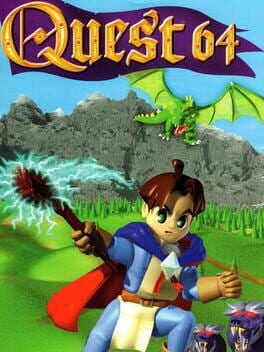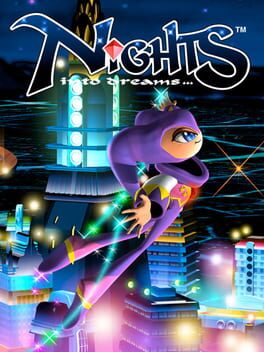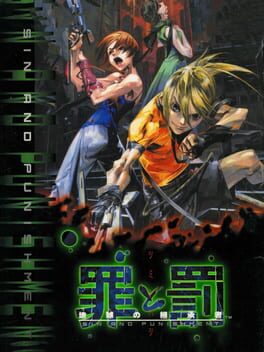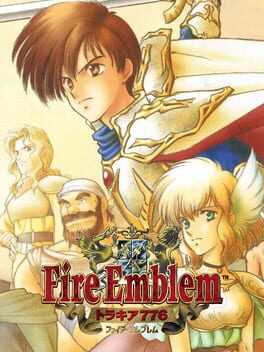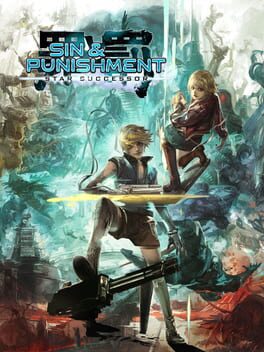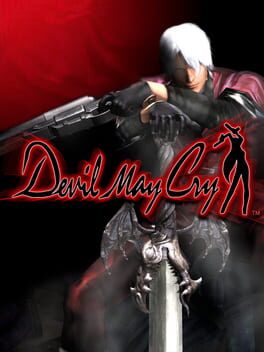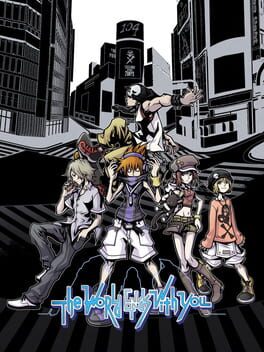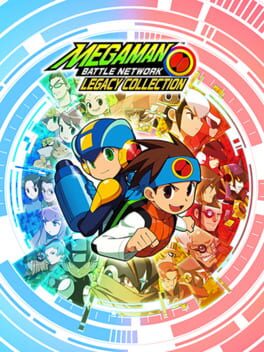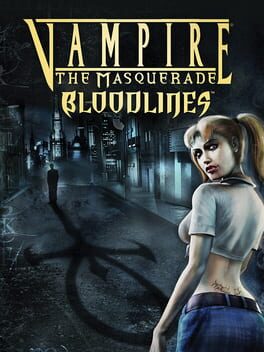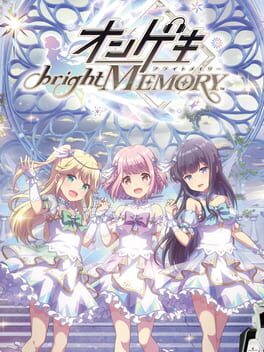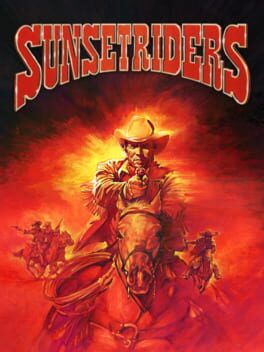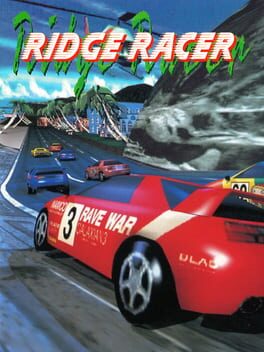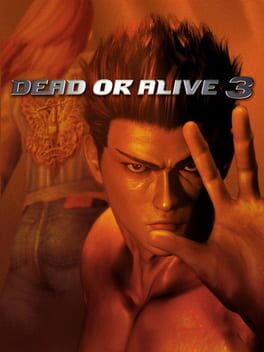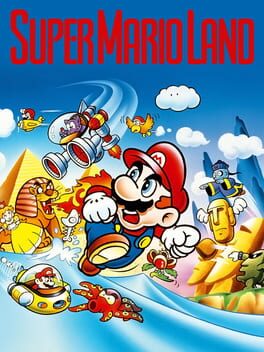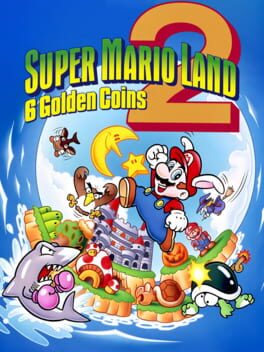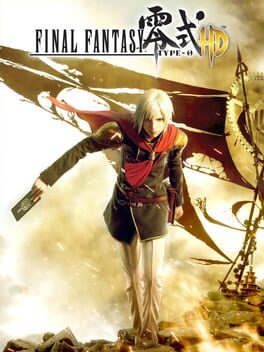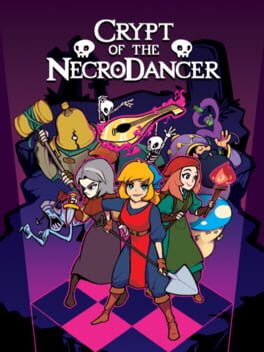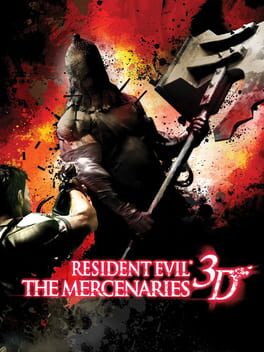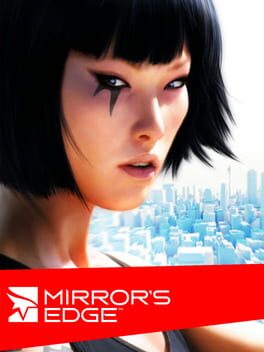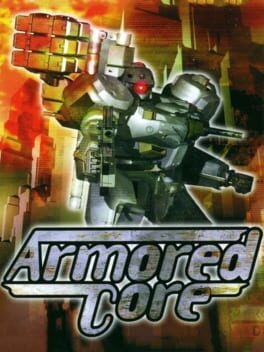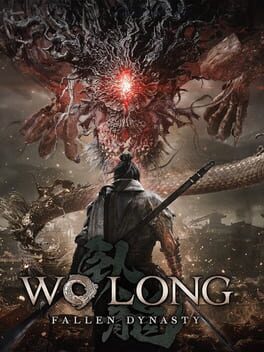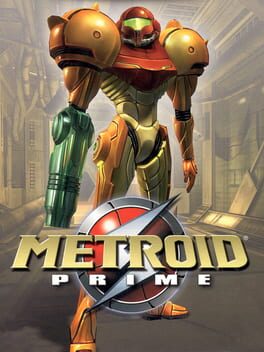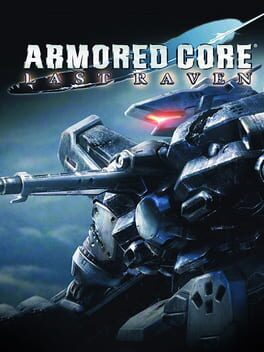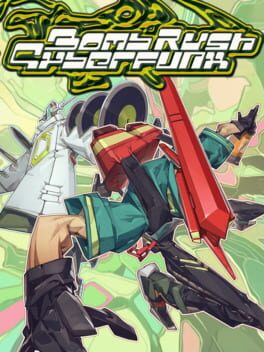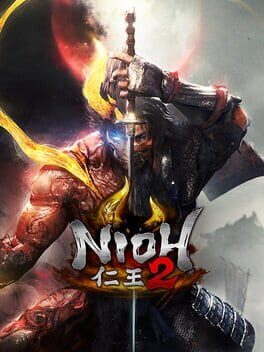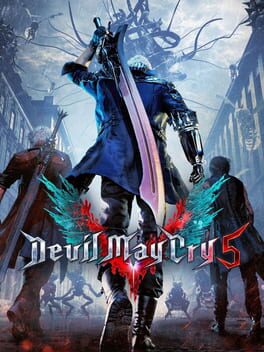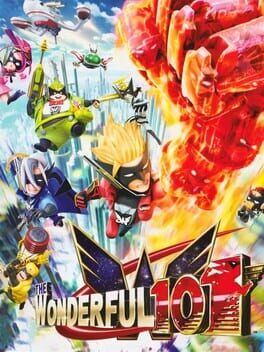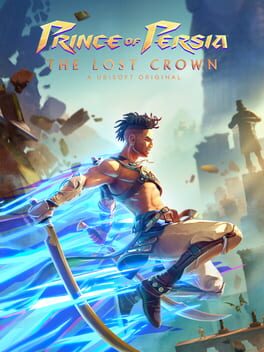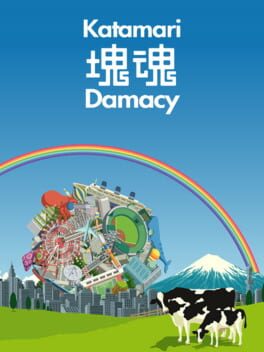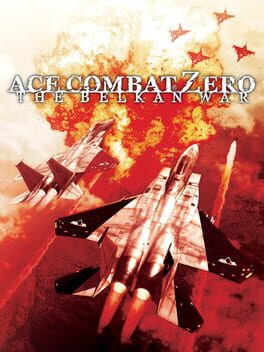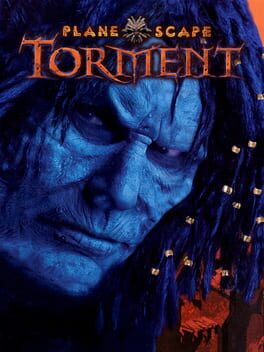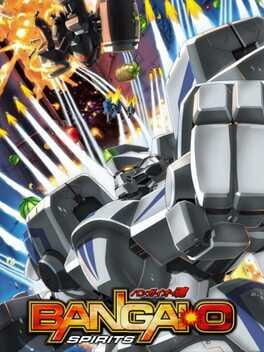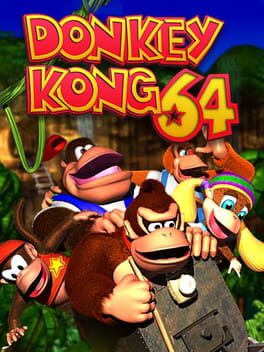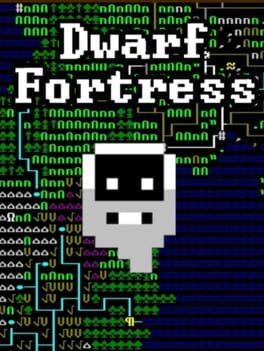609 reviews liked by Reyn
Quest 64
1998
Imagineer coined a uniquely minimal (level-less, item-limited, currency-less and party-less) form of JRPG with Quest 64, whose light storytelling, vast 3D areas and day/night cycles brought them closer to computer-RPGs than to its console-born siblings. What is undoubtedly CRPG-like - however, is their flexible upgrade system. Stat-leveling in the vein of FFII (i.e. earned from various parts of combat) is joined by collectible skill points distributed between 4 elements (which unlock new spells of that type and increase their power). Their combinations - from balanced spreads to a dual-type hyperfocus, governs the player's build with their own merits and limits. That sense of freedom well-complements their turn-based battles; seamless, responsive on-map gameplay with confined movement/dodging that's heavy on the spellcasting, reined in a little by elemental weaknesses and resistance. These two features rescue a work that otherwise would be dull and clumsy, as its lengthy overworld & dungeons plus a general dearth of content (other than a handful of pickups) make for some patience-testing trips. As a result, gameplay oscillates between moments of snappy, entertaining semi-action and sheer torture.
This brief project is many things at once, and - depending on taste, some conclusions are more prominent than others: A few great ideas placed on weak foundations. A half-baked mess. An interesting compromise between action & tactical gameplay. A novel fusion of Western/J-RPG languages, or even a grim omen of their genre's future; of the overscaled, empty worlds that progressively defined the next generation onwards. At the very least - though, a fascinating artifact of its era.
This brief project is many things at once, and - depending on taste, some conclusions are more prominent than others: A few great ideas placed on weak foundations. A half-baked mess. An interesting compromise between action & tactical gameplay. A novel fusion of Western/J-RPG languages, or even a grim omen of their genre's future; of the overscaled, empty worlds that progressively defined the next generation onwards. At the very least - though, a fascinating artifact of its era.
There's someone out there collecting money for every time anyone mentions that this game was formative for them and you know it's fair to point out that they're collecting enough to be in the top 1% earners. But you know what I don't give a fuck about my complicit support towards this being the hallmark "avant-garde" praise dump!!!
MGS2 is about the earnest heart of liberated thinking and the conclusions we can draw from to better ourselves as a result. This might sound dangerously close to some PragerU stunt but I swear I'm intentionally making that line first to border the game's very clear callout to eventually being terminally online culture war machines. Even with the futureproof nature of this writing, this shit is incredible at getting to the heart of breaking into broader thinking and reading between the lines. When the AI talks about controlling information so context is upheld the game also simultaneously tells you that even if the free world is better while having that context broken we all have the capacity to find it again. And I think that's beautiful as fuck.
MGS2 is also a fucked up simulacra of an author and team that were definitely equally bananas and worked against each other in the workplace (see all the interviews) and that energy just makes it all the more genuine, even if it leads to parts that are ridiculously overwritten. Still going to be an important icon for me all the way up into my later years and I'll never stop stanning.
MGS2 is about the earnest heart of liberated thinking and the conclusions we can draw from to better ourselves as a result. This might sound dangerously close to some PragerU stunt but I swear I'm intentionally making that line first to border the game's very clear callout to eventually being terminally online culture war machines. Even with the futureproof nature of this writing, this shit is incredible at getting to the heart of breaking into broader thinking and reading between the lines. When the AI talks about controlling information so context is upheld the game also simultaneously tells you that even if the free world is better while having that context broken we all have the capacity to find it again. And I think that's beautiful as fuck.
MGS2 is also a fucked up simulacra of an author and team that were definitely equally bananas and worked against each other in the workplace (see all the interviews) and that energy just makes it all the more genuine, even if it leads to parts that are ridiculously overwritten. Still going to be an important icon for me all the way up into my later years and I'll never stop stanning.
Super Mario 64
1996
An experienced dev team's first foray into true 3D that, shockingly, gets it right all the way back in June 1996.
Absolutely rock-solid fundamentals which set the tone for the rest of the genre. Analog controls enable precise adjustment of angles which have huge downstream effects. A signature focus on momentum, combined with tricks both intentional and unintentional, birthed one of the most legendary and iconic speedrunning scenes of all time. Systems like this in a casual single player context, balanced to enhance rather than subvert challenges, are rare to find, and even the devs themselves never quite managed to recapture this particular flavor.
The level design here is emblematic of the early 3D era "golden age": enough detail and representation to evoke sense of place, but with the abstraction necessitated by the time's technology both facilitating dense layouts and imbuing the atmosphere with a surreal, dreamlike quality. No established formulas for success existed yet, so levels aren't overly concerned with providing the player a frictionless experience. Each expresses their own quirky character, something felt even more strongly than usual since gameplay is so contextualized by the precise placement of nearby geometry.
Shortcomings mainly occur in obtuse progression/secrets and a handful of stages (more concentrated in the latter half) that don't play to the game's strengths. Luckily, the huge modding scene has leveraged this fantastic foundation and learned from these mistakes to create a veritable cornucopia of visions, both vanilla-like and experimental, for you as a player to explore.
Yup, Quake is a pretty great game!
Absolutely rock-solid fundamentals which set the tone for the rest of the genre. Analog controls enable precise adjustment of angles which have huge downstream effects. A signature focus on momentum, combined with tricks both intentional and unintentional, birthed one of the most legendary and iconic speedrunning scenes of all time. Systems like this in a casual single player context, balanced to enhance rather than subvert challenges, are rare to find, and even the devs themselves never quite managed to recapture this particular flavor.
The level design here is emblematic of the early 3D era "golden age": enough detail and representation to evoke sense of place, but with the abstraction necessitated by the time's technology both facilitating dense layouts and imbuing the atmosphere with a surreal, dreamlike quality. No established formulas for success existed yet, so levels aren't overly concerned with providing the player a frictionless experience. Each expresses their own quirky character, something felt even more strongly than usual since gameplay is so contextualized by the precise placement of nearby geometry.
Shortcomings mainly occur in obtuse progression/secrets and a handful of stages (more concentrated in the latter half) that don't play to the game's strengths. Luckily, the huge modding scene has leveraged this fantastic foundation and learned from these mistakes to create a veritable cornucopia of visions, both vanilla-like and experimental, for you as a player to explore.
Yup, Quake is a pretty great game!
The vibe of the the first Nights game is one of the closest things to magic that I'm capable of feeling as an adult. Thanks to its combination of nostalgically polygonal graphics, an easy to get into gameplay loop, a vibrant art style, and an absolutely sublime soundtrack, I feel one with Nights, in the same way that its main protagonists do. Though it may not necessarily be a Christmas-themed game, it elicits that same sense of wonder I had as a kid. Watching those old Christmas DVD's, finding myself escaping to a world where everything feels exactly right, exactly as it should. Free of worries, and full of joy. Life is but a dream, and the night is synomous with beauty, not the risk of getting mugged in an alley.
Admittingly, I just said that the gameplay is easy to get into, but during my first couple attempts, I didn't actually get what Nights wanted out of me. You do combo chains by collecting as many things as possible, okay, I'm with you so far. You can draw circular trails to attract nearby objects, that's pretty cool too. You break open the capsule with enough collectibles gathered, and then you head over to the goal, to proceed with the next segment of the level. But the one thing I couldn't grasp is why did I keep getting D ranks and F ranks for my efforts. In hindsight though, my effort was bare minimum.
Nights is a score-based game, and though it leaves the option of heading straight for the endgoal open to you, unlocking the game's finale requires a series of high scores. To get them, what you really want to do is go AROUND the endgoal instead, and do another loop of the stage, which causes all of the collectibles to respawn. And then you do another loop, and another. And all the while, your time limit continues ticking down, meaning that while each loop is a chance to score additional points and improve your rank, the time you have to do so grows tighter, and at some point, you'll have to choose whether you want to risk another loop, or call it there and move on to the next segment. Playing Nights this way turns it into a game all about risk, seeing how much you can chew off, and how much faith are you able to place on your skill and efficiency. I don't normally say stuff like this, but I think it's valid enough to say that if if you're not playing Nights in this way, you are gonna get very little out of the experience. Otherwise, what's at play is an incredibly unique gameplay system that elegantly combines a simple control scheme with a satisfying depth in how you utilize it, and what sorts of choices you make with it.
I think the only real problem with Nights into Dreams is kind of the one we echo for more recent Nintendo Switch games: The fact that it was made for the Sega Saturn, instead of a more powerful console. Though arguments can be made on just how underpowered the Saturn was, fact is that most developers didn't know how to utilize it to its fullest potential. Nights itself suffers from its console's limitations, resulting in a depressingly low draw distance, and a poor field of view that gives the classic Sonic games a run for their money. Especially as you start picking up speed, it's really not easy to plan ahead for anything before you ram into it head-on. The modern ports provide a better draw distance, and I consider them the better way to play. But the field of view still remains an unfixed problem. At some point, it'd be nice to have a version of the first Nights game where things get zoomed out a bunch, but considering the nicheness of this franchise, it may take another 10 years before we get anything that nice...
Ah, well. Even with this flaw at hand, Nights is very short and really not that hard to play. Anyone who carries the same fascination I have with these sorts of old 3D games owes it to themselves to try it out. Unconventional games like this don't get greenlit often these days, they'd be deemed too much of a risk to even make it out of the pre-production phase. The very idea that Sega even allowed Sonic Team to go through with this instead of putting them on a major Sonic title is in itself an insane decision. Were mistakes made? Oh, no doubt there were several. But I respect the freedom of Nights into Dreams's existence way too much to call it one of them.
Admittingly, I just said that the gameplay is easy to get into, but during my first couple attempts, I didn't actually get what Nights wanted out of me. You do combo chains by collecting as many things as possible, okay, I'm with you so far. You can draw circular trails to attract nearby objects, that's pretty cool too. You break open the capsule with enough collectibles gathered, and then you head over to the goal, to proceed with the next segment of the level. But the one thing I couldn't grasp is why did I keep getting D ranks and F ranks for my efforts. In hindsight though, my effort was bare minimum.
Nights is a score-based game, and though it leaves the option of heading straight for the endgoal open to you, unlocking the game's finale requires a series of high scores. To get them, what you really want to do is go AROUND the endgoal instead, and do another loop of the stage, which causes all of the collectibles to respawn. And then you do another loop, and another. And all the while, your time limit continues ticking down, meaning that while each loop is a chance to score additional points and improve your rank, the time you have to do so grows tighter, and at some point, you'll have to choose whether you want to risk another loop, or call it there and move on to the next segment. Playing Nights this way turns it into a game all about risk, seeing how much you can chew off, and how much faith are you able to place on your skill and efficiency. I don't normally say stuff like this, but I think it's valid enough to say that if if you're not playing Nights in this way, you are gonna get very little out of the experience. Otherwise, what's at play is an incredibly unique gameplay system that elegantly combines a simple control scheme with a satisfying depth in how you utilize it, and what sorts of choices you make with it.
I think the only real problem with Nights into Dreams is kind of the one we echo for more recent Nintendo Switch games: The fact that it was made for the Sega Saturn, instead of a more powerful console. Though arguments can be made on just how underpowered the Saturn was, fact is that most developers didn't know how to utilize it to its fullest potential. Nights itself suffers from its console's limitations, resulting in a depressingly low draw distance, and a poor field of view that gives the classic Sonic games a run for their money. Especially as you start picking up speed, it's really not easy to plan ahead for anything before you ram into it head-on. The modern ports provide a better draw distance, and I consider them the better way to play. But the field of view still remains an unfixed problem. At some point, it'd be nice to have a version of the first Nights game where things get zoomed out a bunch, but considering the nicheness of this franchise, it may take another 10 years before we get anything that nice...
Ah, well. Even with this flaw at hand, Nights is very short and really not that hard to play. Anyone who carries the same fascination I have with these sorts of old 3D games owes it to themselves to try it out. Unconventional games like this don't get greenlit often these days, they'd be deemed too much of a risk to even make it out of the pre-production phase. The very idea that Sega even allowed Sonic Team to go through with this instead of putting them on a major Sonic title is in itself an insane decision. Were mistakes made? Oh, no doubt there were several. But I respect the freedom of Nights into Dreams's existence way too much to call it one of them.
Sin and Punishment
2000
Shit owns. It's definitely in contention for THE best N64 game of all time.
The incredible set pieces Treasure managed to eke out of the 64's limited processing power are just stunning, from front to back. It doesn't control the best -- it always feels a bit clunky -- but it's almost like the game knows this, and so it passes out continues like candy, and offers super-generous checkpoints. It doesn't want to frustrate you, or grind you down with difficulty (though there's always 1CC attempts, hard mode, and playing for score if you WANT that); it just wants you to have a fuckin' rad time.
The incredible set pieces Treasure managed to eke out of the 64's limited processing power are just stunning, from front to back. It doesn't control the best -- it always feels a bit clunky -- but it's almost like the game knows this, and so it passes out continues like candy, and offers super-generous checkpoints. It doesn't want to frustrate you, or grind you down with difficulty (though there's always 1CC attempts, hard mode, and playing for score if you WANT that); it just wants you to have a fuckin' rad time.
thracia is a game that really wants you to reexamine some behaviors and thoughts that you may have considered intrinsic to playing video games. is it worth it to strive for perfection? is fairness really the end goal of difficulty? is there really no honor in cheating? the most common statement you'll see about this game is that it's brutal, and the second most common statement you'll see about this game is that it's "just unfair to new players, but not that hard". neither of these statements are quite true; thracia is a very difficult game, and it is especially unkind to blind players, but it's paradoxically very effectively balanced. for the most part, this isn't a game where you're being put up against enemies way stronger than you, or a game where the enemies are given tons of toys you can't have. thracia is about trying to turn every disadvantage you're given into an advantage, and trying to win by choosing not to play within what the game presents as it's "rules" at all. to me, thracia feels very genuinely revolutionary in a way the prior 4 FEs, all also about revolutions, did not. the fatigue system means you are not allowed to be picky about your units, and you do not get your usual assortment of nobles and world-renown warriors. instead, you get a heck of a lot of bandits and sellswords, not to mention a handful of priests and illegitimate children. speaking of those bandits and priests, they are universally your MVPs in thracia. thracia has a very strong sense of materialism, both in it's plot and mechanics, which means that stealing and capturing weapons is simply your only option for acquiring weapons and money. this means that utility units are much stronger than in any other fire emblem game; not only because you have to steal to survive, but also because disarming is often a better option than just directly killing. why should i murder reinhardt when if i berserk him then sleep him i can get him to thin his troops and steal his gear? why should i bother fighting all these mages when i can send lifis in and just take all their books instead? this stuff brings a really interesting sense of resource management to thracia, and means that the player has theoretically nearly infinite opportunities to get good weapons, but has to gauge whether or not it's worth going for them each time they fight. this is furthered by making villages occasionally very difficult extras to get, and the addition of missable gaiden chapters help this greatly too. thracia has a very strong conception of risk vs reward; to simply clear the maps, you often have very easy and simple options, but simply clearing the maps is rarely enough. you are forced to take gambles to survive, but you are never expected to be perfect. a 100% playthrough of this game would likely increase the playtime by more than half off resets alone, but i don't think that that is a mistake or a negative. to me, thracia is rather genius in that it puts so much decisionmaking in the player's hands, and so little of that decisionmaking directly relates to killing. a good amount of your units can reliably crit, so cutting through enemies isn't something you need to worry too much about.. instead, what you're concerned with is not bleeding out on resources, making sure your units can avoid status effect spam, making sure you can have your units available when you need them. is it bullshit that you can be hit from halfway across the map by a sleep staff in enemy phase? sure. but i can silence that staffer, i can berserk them, i can steal their sleep staff.. you just have so many options, and just killing them is usually the least effective and least interesting one! in another strategy game, this sort of thing would be considered cheese, but here, it's life. you have the option to play "honorably" and fight like a man, sure, but are the enemies fighting honorably? hell no. fuck em. to me, this is exactly the sort of difficulty a strategy game should have. extremely lethal, extremely diverse, and not fair at all... but filled with options for interesting decisionmaking instead of just overstatting brute force ai. there is very little division between what you can do and what the ai can do. the defining difference is that you are not a bot.
STORY SPOILERS AHEAD
storytelling in thracia is another big strength. i think that the very restrained focus here helps a lot with character building and thematics. prior fire emblem games were all extremely grand continent-spanning high fantasy stories, which isn't a problem for those games at all, but i do feel that occasionally the macro scale of those stories meant that we could not feel the struggles of individual characters so closely. even mystery of the emblem, which does have a similar style of gameplay and a comparable story to thracia, is so zoomed out that i could hardly tell you what marth or caeda are feeling about what's happening. by contrast, leif is excellently built up, undergoing strong development through many losses. leif is someone who was born into natural conditions fit for traditional heroism, but is also someone who is given plenty reason to believe that his rebellion will only crush hope. prior lords had generally been characterized by naivety and great kindness; marth had been unable to accept that his allies had turned against him, sigurd had so much faith in the goodness of others that he ended up blind to conspiracy, celica loved alm so much that she was willing to suffer and sacrifice her cause for his sake. leif is anything but naive, and his kindness is often hardly virtuous. leif is racked with self-doubt at every turn, and when he is not, his ignorance and rash attitude bites him in the ass. he wants to save his people and repay the debts of his childhood at all costs, even though it has him taking on more than he can handle. his nobility alienates him from causes that much of his army is fighting for. many of his flaws would make him seem not so dissimilar from the friegian generals he's up against, but the important part is that leif learns from his mistakes as time goes on, and he never gives up. by the end of the game, his title of sage-lord doesn't feel farfetched. the enemy factions in thracia are also very well characterized. one detail i especially like is that the infamous thracian dracoknights rarely show up at all unless they're trying to seize an objective before you, and they're extremely lazy units. they don't leave their posts until you get in their range or split up your units, and they always leave the map when you kill their commander. this gets across very well that south thracia has little passion for the war they've been paid to fight in, they only see their alliance with the empire opportunistically. my only complaint with the story is that the final few chapters feel like a bit of afterthought or obligation story-wise, the audience just doesn't get a lot of in-universe justification for why the strategy is being executed the way it is, probably because it diverges from genealogy at this point. saving eyvel and defeating raydrik both make sense, but the loptrian church has very little personal relevance to the cast here. it didn't bother me because the last stretch of the game is sheer excellence from a gameplay perspective, but i do feel it's worth noting.
some minor notes i couldn't fit in here:
door key softlocks are really dumb and probably the single worst part of this game
chapter 12x and 14x are objectively quite poorly designed chapters for very different reasons; 12x is a chapter that feels almost deliberately designed for you to not engage with playing it, and 14x is a fog of war chapter that has long range troops and random pegasus knight spawns which can capture your units but you can't capture back. i think 14x is still effective narratively, but it's one of the only moments where i felt that thracia was sadistic in a way the player could not appropriately respond to or work around without foreknowledge or with clever strategy.
the variety in objectives is a huge plus for thracia and something i wish had been implented sooner. escape maps and survival maps are both awesome
STORY SPOILERS AHEAD
storytelling in thracia is another big strength. i think that the very restrained focus here helps a lot with character building and thematics. prior fire emblem games were all extremely grand continent-spanning high fantasy stories, which isn't a problem for those games at all, but i do feel that occasionally the macro scale of those stories meant that we could not feel the struggles of individual characters so closely. even mystery of the emblem, which does have a similar style of gameplay and a comparable story to thracia, is so zoomed out that i could hardly tell you what marth or caeda are feeling about what's happening. by contrast, leif is excellently built up, undergoing strong development through many losses. leif is someone who was born into natural conditions fit for traditional heroism, but is also someone who is given plenty reason to believe that his rebellion will only crush hope. prior lords had generally been characterized by naivety and great kindness; marth had been unable to accept that his allies had turned against him, sigurd had so much faith in the goodness of others that he ended up blind to conspiracy, celica loved alm so much that she was willing to suffer and sacrifice her cause for his sake. leif is anything but naive, and his kindness is often hardly virtuous. leif is racked with self-doubt at every turn, and when he is not, his ignorance and rash attitude bites him in the ass. he wants to save his people and repay the debts of his childhood at all costs, even though it has him taking on more than he can handle. his nobility alienates him from causes that much of his army is fighting for. many of his flaws would make him seem not so dissimilar from the friegian generals he's up against, but the important part is that leif learns from his mistakes as time goes on, and he never gives up. by the end of the game, his title of sage-lord doesn't feel farfetched. the enemy factions in thracia are also very well characterized. one detail i especially like is that the infamous thracian dracoknights rarely show up at all unless they're trying to seize an objective before you, and they're extremely lazy units. they don't leave their posts until you get in their range or split up your units, and they always leave the map when you kill their commander. this gets across very well that south thracia has little passion for the war they've been paid to fight in, they only see their alliance with the empire opportunistically. my only complaint with the story is that the final few chapters feel like a bit of afterthought or obligation story-wise, the audience just doesn't get a lot of in-universe justification for why the strategy is being executed the way it is, probably because it diverges from genealogy at this point. saving eyvel and defeating raydrik both make sense, but the loptrian church has very little personal relevance to the cast here. it didn't bother me because the last stretch of the game is sheer excellence from a gameplay perspective, but i do feel it's worth noting.
some minor notes i couldn't fit in here:
door key softlocks are really dumb and probably the single worst part of this game
chapter 12x and 14x are objectively quite poorly designed chapters for very different reasons; 12x is a chapter that feels almost deliberately designed for you to not engage with playing it, and 14x is a fog of war chapter that has long range troops and random pegasus knight spawns which can capture your units but you can't capture back. i think 14x is still effective narratively, but it's one of the only moments where i felt that thracia was sadistic in a way the player could not appropriately respond to or work around without foreknowledge or with clever strategy.
the variety in objectives is a huge plus for thracia and something i wish had been implented sooner. escape maps and survival maps are both awesome
Devil May Cry
2001
A profoundly misunderstood classic that manages to impresses when stacked up against other games of the time, and effortlessly clears most modern attempts at being a satisfying action game. Even beyond the innovation on display (nobody was doing it like Capcom back in the late 90's/early 2000's) I'm consistently swept off my feet at how enjoyable this game is, even after around 8 personal playthroughs and 21(!) years of further innovation and inspiration in the medium. Dante may be a tad heftier than your modern action protag, but it has the side-effect of forcing you to constantly stay glued to encounters in a way I haven't really seen before. You must consider every step you take and every action you make, it's electrifying. I don't have any ill will towards Itsuno for reinventing the series like he did --who wouldn't after being tasked with scraping together the scattered remains of the last title and still having it come out like crap-- but there's still something here that later entries still have yet to recapture for me. It may not have the glitz and glamor of it's many sequels, but what you get instead is one of the most well considered, tightly paced, and highly rewarding gaming experiences out there.
One really cool trend we saw back in the last decade is formerly underground franchises breaking into the mainstream. Persona, Yakuza, Monster Hunter, Fire Emblem, and Xenoblade all had dedicated followings before but are now bringing in more fans than ever. Among these is Balan Wonderworld which blew people away with its frenetic action, deep characters, and philosophical storytelling. Its success led to many people checking out the game’s predecessor, Nights: Into Dreams. And let’s just say that the early installment weirdness is strong with this one.
The biggest issue with Nights could be summed up in four words: Creative ideas, Weird execution. Nowhere is this more evident with the game’s main protagonist Nights. Nights is a character we are supposed to straight up despise. You’re supposed to see them as a mass murdering psychopath. They’re supposed to be the embodiment of the player who kills all the clearly sapient enemies to power up and show what that person who actually be like. In other words, they were the original Chara. Heck, they even got the same pronouns. The game really wants you to hate them and constantly has the other characters as well as the very narration itself call them out.
(Clip of Elliot saying “Full of bloodlust, as always.)
But the problem is that nearly every one of Nights’s murders are completely justified. The game seems to forget the fact that Nights is a soldier fighting a war where the other side wants to destroy seals to release an eldritch abomination upon the world. Also, the enemy soldiers are almost always portrayed as nothing more than simple video game enemies for you to kill. As mangled as the phrase has become, Nights is just doing their job.
The one silver lining to all this is that Yuji Naka learned from his missteps. Balan Wonderworld did a far better job at linking story and gameplay together while Shot2048 gave us a far superior villain protagonist. I’m DestroyerOfMid and I’ll see you in the comments… again.
The biggest issue with Nights could be summed up in four words: Creative ideas, Weird execution. Nowhere is this more evident with the game’s main protagonist Nights. Nights is a character we are supposed to straight up despise. You’re supposed to see them as a mass murdering psychopath. They’re supposed to be the embodiment of the player who kills all the clearly sapient enemies to power up and show what that person who actually be like. In other words, they were the original Chara. Heck, they even got the same pronouns. The game really wants you to hate them and constantly has the other characters as well as the very narration itself call them out.
(Clip of Elliot saying “Full of bloodlust, as always.)
But the problem is that nearly every one of Nights’s murders are completely justified. The game seems to forget the fact that Nights is a soldier fighting a war where the other side wants to destroy seals to release an eldritch abomination upon the world. Also, the enemy soldiers are almost always portrayed as nothing more than simple video game enemies for you to kill. As mangled as the phrase has become, Nights is just doing their job.
The one silver lining to all this is that Yuji Naka learned from his missteps. Balan Wonderworld did a far better job at linking story and gameplay together while Shot2048 gave us a far superior villain protagonist. I’m DestroyerOfMid and I’ll see you in the comments… again.
Drakengard
2003
27 lists liked by Reyn
by Yeahlookiehere |
17 Games
by Pangburn |
4 Games
by Raeng |
18 Games
by Pangburn |
32 Games
by HotPocketHPE |
18 Games
by SGS_Man |
1 Games
by SOLERO |
10 Games
by ProudLittleSeal |
39 Games
by Lordg |
88 Games
